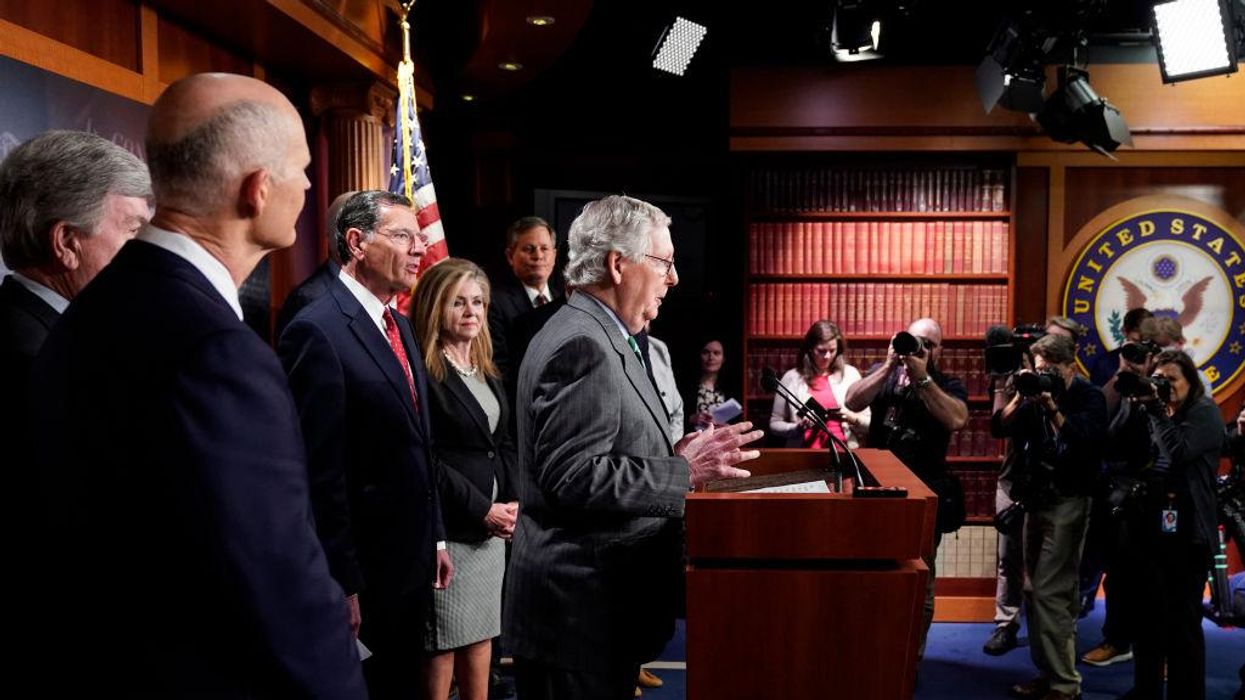Nevins is co-publisher of The Fulcrum and co-founder and board chairman of the Bridge Alliance Education Fund.
Yesterday, our congressional dysfunction continued as the vote on the For the People Act was along purely partisan lines with a vote of 50 Democrats in favor and 50 Republicans against. The level of dysfunction is heightened by the fact that this was not a vote to pass the voting rights legislation, but simply a vote on whether to even debate the proposed legislation.
Whether one believes that the wave of state-level voting changes is warranted or not, whether one believes in the voting rights legislation in its present format or not, there is no doubt that Americans believe that voting is at the heart of our democratic process. Yet the vote as to whether to even have a debate on the subject was 100% partisan.
As I listened to the rationale on both sides before, during and after the vote, I realized that the rhetoric was devoid of any desire for an open-minded search for the truth and a workable solution on this vital issue.
As I switched channels between FOX, MSNBC, and CNN, I witnessed the dogma and observed how it can give the holder a warm and comforting feeling of security in this time of great change and anxiety in our nation. Comfort unfortunately does not allow for the possibility of advancement and a modicum of common ground.
Polls repeatedly show that a vast majority of Americans in both parties want fair and open elections. Yet this is rarely mentioned by the press or members of Congress as the dysfunction continues. Finding the balance between reasonable voter ID that 75% of Americans favor and federal standards to ensure that voting is accessible and fair cannot even be debated as both sides are entrenched in the dogmatic rhetoric of left versus right politics.
Therefore, the dysfunction continues as both sides enflame their followers. A writing by professor Dan Schnur published in Allsides.com entitled Both Parties Rely on Fear-Mongering articulates the problem.
Democrats issue dire warnings of the threat of voter suppression. Republicans sound the alarm about the menace of voter fraud. But both parties are dramatically overstating an exaggerated problem to whip their most devoted supporters into a frenzy. The result is that confidence in the foundation of our democratic process is at an all-time low, driven down by unyielding partisan attacks from both the left and the right as a cynical tool to motivate their most committed loyalists.
Last night as I reflected, I was reminded of a quote from Brené Brown, a research professor who has spent a decade studying vulnerability, courage, authenticity, and shame:
My inability to lean into the discomfort of vulnerability limited the fullness of those important experiences that are fraught with uncertainty: Love, belonging, trust, joy, and creativity to name a few.
You may ask how this in any way relates to the dogma perpetrated by our political leaders who each have their own prescribed doctrine proclaimed as unquestionably true by their side. Perhaps it is our fear of uncertainty, and the vulnerability that comes with uncertainty, that leads the citizens of our country to gravitate to candidates who claim to have the answer, who portray everything with a high degree of certainty in comforting black and white terms.
Our nation is trapped by political dogma and the greatest casualty is the truth that is needed for pragmatic solutions. Everything gets lost in the posturing, the fear mongering, and the close mindedness as nothing gets done. And We the People are the collateral damage of this partisan warfare.
We can and must do better as a nation. Now is the time, because so much is at stake.




















Trump & Hegseth gave Mark Kelly a huge 2028 gift